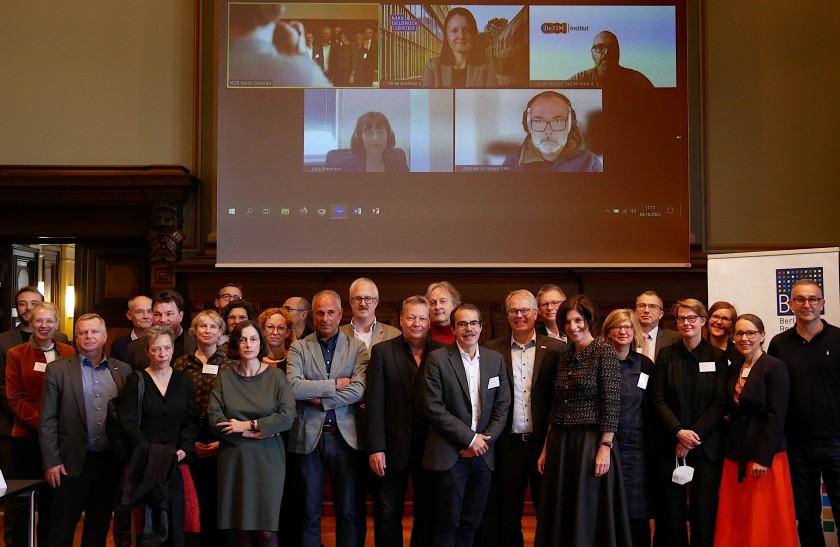For strong non-university research in Berlin

With greater impact: As an association, BR50 can promote networking in the Berlin research area even more strongly.
The non-university research institutions in Berlin will work even more closely together in the future. Their association Berlin Research 50 (BR50), founded in 2020, has joined forces to form a registered non-profit association on 4. October 2022. Together, the research institutions want to further develop and strengthen Berlin as a science location.
Representatives of the institutions gathered at the Social Science Research Center Berlin (WZB) for the official founding of the association. A five-member board was also elected. Following the founding, the association now comprises 27 research and science institutions, including Leibniz and Max Planck Institutes, Helmholtz Centres and federal departmental research institutions. Other non-university institutions in Berlin are associated with the association as partners in the network.
As an association, BR50 will support its member institutions even more in networking with each other and with other scientific actors in Berlin and represent the interests of non-university institutions.
You can find more information on the BR50 page.
BR 50 Podcast - lots of exciting research
Many societal challenges, such as climate change, are far too complex for one scientific discipline to solve alone. But together they are making progress. The BR 50 podcast gives an insight into how versatile the research of "non-university" scientists is. In two podcast episodes, listen to how the Helmholtz Centre Berlin is advancing the energy transformation in society with its research. Here you get to the podcast (in German).
(sz)
https://www.helmholtz-berlin.de/pubbin/news_seite?nid=24132;sprache=en
- Copy link
-
Green fabrication of hybrid materials as highly sensitive X-ray detectors
New bismuth-based organic-inorganic hybrid materials show exceptional sensitivity and long-term stability as X-ray detectors, significantly more sensitive than commercial X-ray detectors. In addition, these materials can be produced without solvents by ball milling, a mechanochemical synthesis process that is environmentally friendly and scalable. More sensitive detectors would allow for a reduction in the radiation exposure during X-ray examinations.
-
Electrical energy storage: BAM, HZB, and HU Berlin plan joint Berlin Battery Lab
The Federal Institute for Materials Research and Testing (BAM), the Helmholtz-Zentrum Berlin (HZB), and Humboldt University of Berlin (HU Berlin) have signed a memorandum of understanding (MoU) to establish the Berlin Battery Lab. The lab will pool the expertise of the three institutions to advance the development of sustainable battery technologies. The joint research infrastructure will also be open to industry for pioneering projects in this field.
-
BESSY II: Insight into ultrafast spin processes with femtoslicing
An international team has succeeded at BESSY II for the first time to elucidate how ultrafast spin-polarised current pulses can be characterised by measuring the ultrafast demagnetisation in a magnetic layer system within the first hundreds of femtoseconds. The findings are useful for the development of spintronic devices that enable faster and more energy-efficient information processing and storage. The collaboration involved teams from the University of Strasbourg, HZB, Uppsala University and several other universities.
